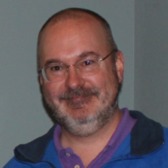

Phillips Exeter Academy, Exeter, New Hampshire
9, 10, 11, 12
Mr. Blackwell first went through the Spitzer Teacher Program in 2007. He rejoined NITARP as a mentor educator in 2011, 2012, and 2013.
Mr. Blackwell is a PAEMST awardee! Here is the press release.
Many people helped with the review of the 2023 NITARP teams' proposals. Thanks to you all! People at IPAC who helped included:
Many NITARP alumni helped us out with reviewing the NITARP 2022 proposals. Scientists who helped include Chris Gelino, Mike Kuhn, and Julian van Eyken. Thanks to all!
Despite the global pandemic, many NITARP alumni helped us out with reviewing the NITARP 2020 proposals! Scientists who helped include Tiffany Meshkat, Patrick Lowrance, Mike Werner, Seppo Laine, and Julian van Eyken. Thanks to all!
Mr. Blackwell is working on a multi-state magnetometer project for ionospheric current, space-weather, solar activity studies. He will be presenting information on this at the January 2020 AAS.
He also has two kids preparing to go to college for astrophysics. And, he ran the Exeter Astronomy Education Conference in June 2019, which involved several NITARP alumni.
Many NITARP alumni helped us out with reviewing the NITARP 2018 proposals! Scientists who helped include Babar Ali, Calen Henderson, Tiffany Meshkat, and Julian Van Eyken. Thanks to all!
Many NITARP alumni helped us out with reviewing the NITARP 2017 proposals! Scientists who helped include Chris Gelino, Marie Ygouf, Julian van Eyken, and Jessica Krick. Thanks to all!
Many NITARP alumni helped us out with reviewing the NITARP 2015 proposals! Scientists who helped include B. Berriman, J. Krick, P. Lowrance, P. McGehee, R. Millan-Gabet, B. Rusholme, and J. van Eyken. Thanks to all!
Both NITARP 2014 teams submitted research proposals. Several NITARP alumni helped review them.
Mr. Blackwell gave a talk about quasars, Seyferts, his NITARP experiences, and what the research results mean (or don't mean) at the McAullife-Shepard Discovery Center in Concord, NH, to the monthly meeting of the New Hampshire Astronomical Society. He also advertised NITARP to the amateur astronomers in attendance (what it is, how to get involved, database access).
Mr. Blackwell gave a presentation on Kepler at the McAuliffe-Shepard Discovery Center.
Mr. Blackwell will be a mentor educator for the 2012 NITARP team HR4AGN.
We are officially announcing our 2011 class! Here they all are.
Mr Blackwell will be offering the Spitzer data set to students in the spring term, so that they may use it in their final astronomy projects. He plans to continue to offer his services to other schools, planetariums and such when he goes for talks. Students and teachers both see the need for continued programs like this in order to promote science. Students learn more by doing... this has proven that once again!
Mr. Blackwell attended the AAS meeting in Washington D.C.. He learned quite a bit via the talks by Gregory Rudnick concerning the IR studies of galaxy clusters. His astronomical studies have focused on cataclysmic variables, "so galactic studies are quite new to me and a pleasure. Photometry in the IR of galaxies is all new to me." He learned a lot about the various methods used to calculate star birth rates using Spitzer (and other) data.
Mr. Maranto offered a workshop entitled "The Spitzer Space Telescope and IC2118" to the astronomy club to generate interest in working with our data. The talk was to be followed by an evening of general telescopic observation. Mr. John Blackwell and his group took a photograph of the nebula with a 90 minute exposure on an 8 inch reflector with an f3 aperture.
It has been a pleasure working in the program and with the other educators and students.
Some hypotheses do not succeed, even with the best scientific ‘assumptions’ and backgrounds…. I know – it’s not all that surprising really, but it was interesting. I’ve seen this many times before, but it always brings me to my favorite place when “doing” science: now what?
Science is hard! ;-) Also, it is worth the work!
Astronomers remain focused, polite, caring and thoughtful about the future generations who will take on the study. I think this message alone has huge meaning in my classrooms [...]
One of the things I love about astronomy is the very fact that we are not laboratory-bound scientists. Our lab is the universe, a constantly changing petri dish in the sky, so to say, and if you aren’t looking, you miss it!
The "new" astronomy has become something we all knew was coming: handling huge chunks of data and learning how to mine this information from sets so large that it is simply mind boggling. The interesting thing is that many people are not aware of this, notably teachers in the trenches.